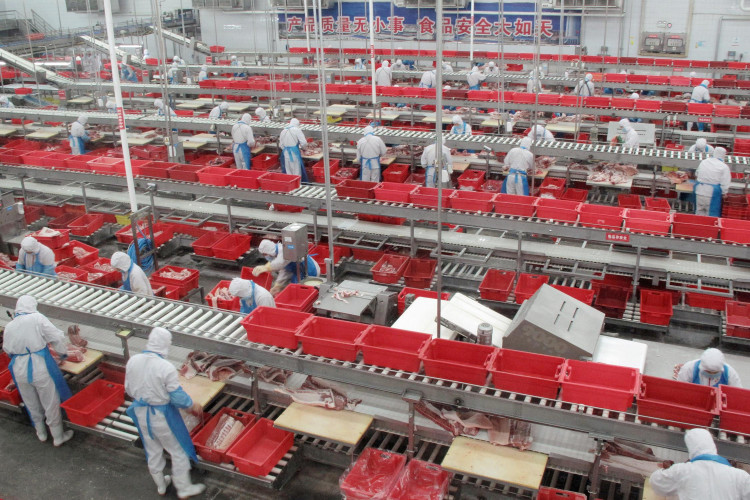So far this year, six cargo aircraft carrying over 4,000 top-quality breeding pigs from France have landed in China, the first batch of plane-loads as the world's leading pork producer reconstructs its depleted hog industry.
After an outbreak of African swine fever swept through the world in late 2018, China is raising its imports, getting rid of millions of pigs and slashing its sowing herd by as much as 60 percent.
The Harbin Veterinary Research Institute of China, the country's top animal disease research agency, said in March that it had produced an African swine fever vaccine that laboratory tests showed to be safe and reliable. It did not offer a timetable, however, on when it would be available for commercial use.
Rising prices of pork and a government push to restore normalcy have pushed the agriculture sector which had stopped buying to restart orders, with some doubling contracts signed before the crisis. Each charter amounts to up to € 1.5 million ($1.6 million).
"They lost 50 percent of the herd, just like after World War Two, and must repopulate quickly to get it back," Marie Pushparajalingam, global analyst for Axiom, a French swine genetics firm.
China imports breeding hogs to capitalize on the features such as bigger productivity and better meat quality producers pick during breeding season. A good quality breeding sow may have as many as 16 piglets in litter.
In January, Axiom deployed two 777 charters to China, followed in March by two other 747s, totaling some 3,400 heads. The company has signed deals later in the year for another six plane-loads, Pushparajalingam stated, and expects additional orders.
Meanwhile, Chinese pork prices continued to edge down last week as supply soared and demand weakened, official data showed.
The average pork price index in 16 provincial-level regions monitored by the Ministry of Agriculture and Rural Affairs came in at 45.86 yuan (around $6.5) per kg from March 23 to 27, down 3.5 percent weekly.
The price retreat came as multi-pronged steps were taken by the government to improve supply, including the subsidies to restore hog demand, releasing frozen pork stocks and widening imports.
Another 500 hogs bred by Dutch producer Topigs Norsvin arrived last week from France in Guizhou, said China's Dekang Company, which will use the pigs in a nucleus breeding farm to produce 20 million pigs for slaughtering.
Usually, China slaughters about 700 million pigs a year to produce more than 50 million tons of pork - around 50 percent of the world consumption. But last year, the coronavirus outbreak decreased pork output by 20 percent, pushing prices up, and production is expected to fall again in the coming months.





